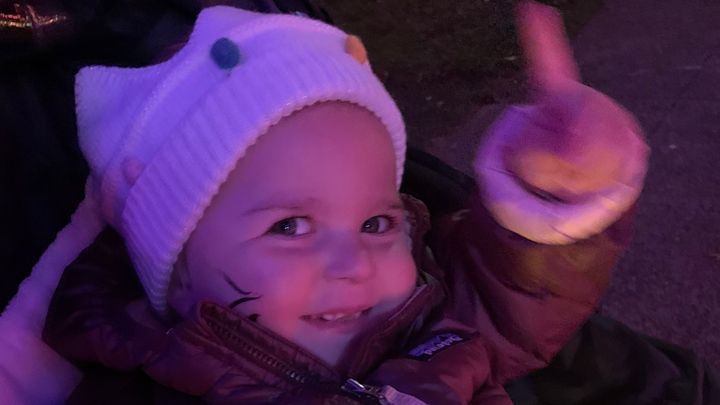Donation protected
Asking for help is hard, and harder still when it means admitting to ourselves our worst fear has been realized…
On Halloween Day 2019, just one week after her birth, our daughter Talia lay limp and barely breathing in our arms. She was rushed to our local emergency department in Juneau, AK where it was quickly determined she needed more help than they could provide and was medevacked to Anchorage. Periodically during her transport, which involved two ambulances and a turbulent airplane ride, Talia’s left arm and leg would twitch in a strange rhythmic pattern. Almost imperceptible except for the cacophony of alarms that sounded immediately after. Alarms alerting the crew Talia was not breathing. The seconds it took for them to help her regain her breath felt like a lifetime.
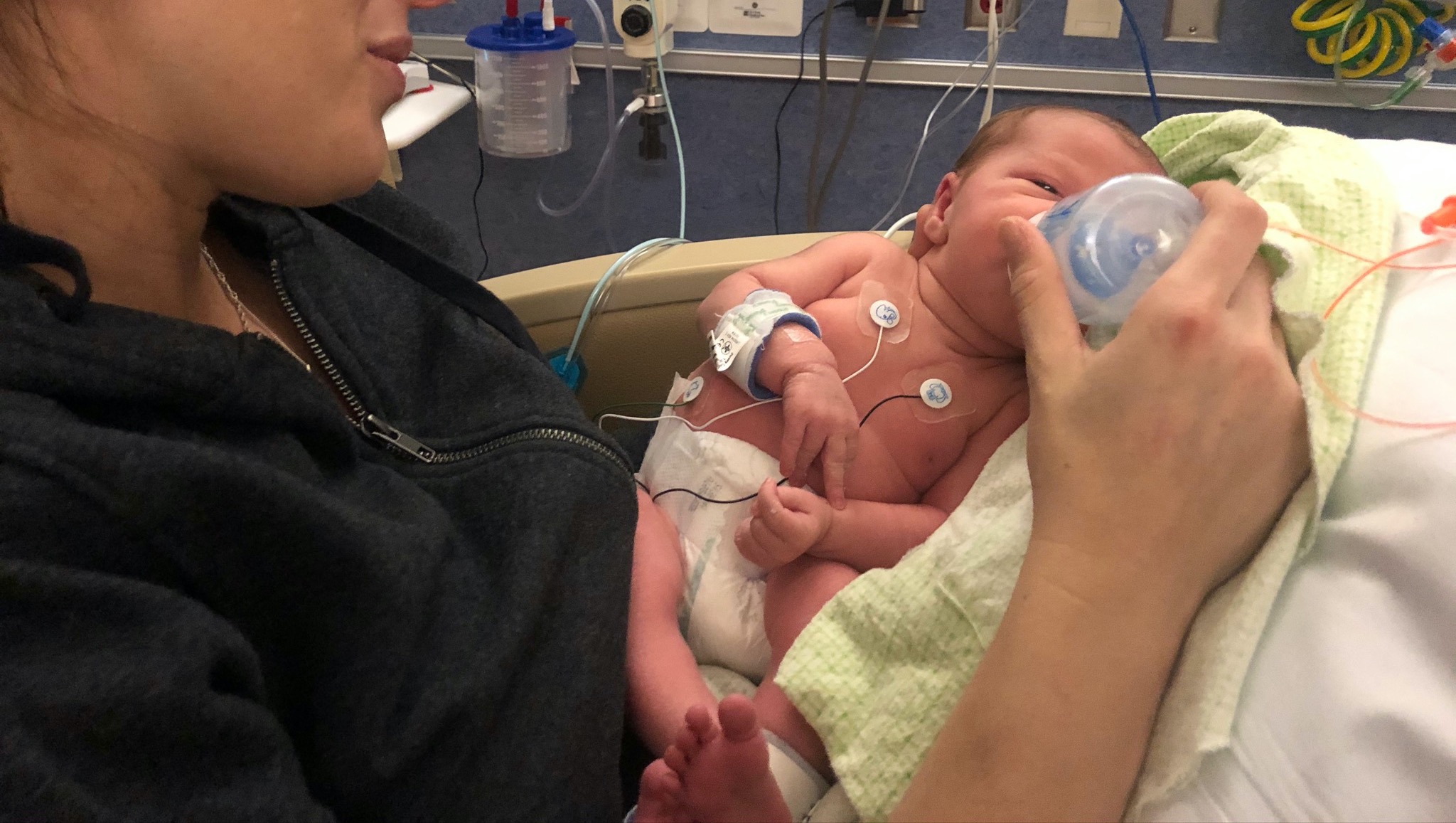
After a litany of tests and invasive procedures including a lumbar spinal tap, intubation, CT scan, MRI, and a peripherally inserted central catheter, it was determined that she had suffered a massive stroke on the right side of her brain. The twitching and breathing problems she suffered were apneic seizures, a direct result of the damage done to her brain. She remained in the NICU for nearly a month as she slowly gained strength and the doctors found the right mix of medications to get her seizures under control. We were overjoyed and terrified when she was released from the hospital and given the okay to travel back home to Juneau. There was little help in the way of what to do next or what to anticipate. They sent us on our way with, “you’d be surprised, kids like this do better than you’d expect” and a phone number for our local therapy services.
Over the next year and a half Talia displayed symptoms that were getting more and more difficult to be explained by a stroke alone. Early on we saw a specialist who told us abnormalities in her MRI made her question whether Talia had a stroke at all and suggested instead the damage to her brain was caused by a genetic defect in her DNA. Her other doctors steadfastly held to the stroke hypothesis, and we desperately hoped they were right, but she planted a seed. In response to concerning test results in June of this year we traveled down to Seattle Children’s Hospital where Talia underwent further testing and surgery for a feeding tube. We pushed hard for genetic testing.
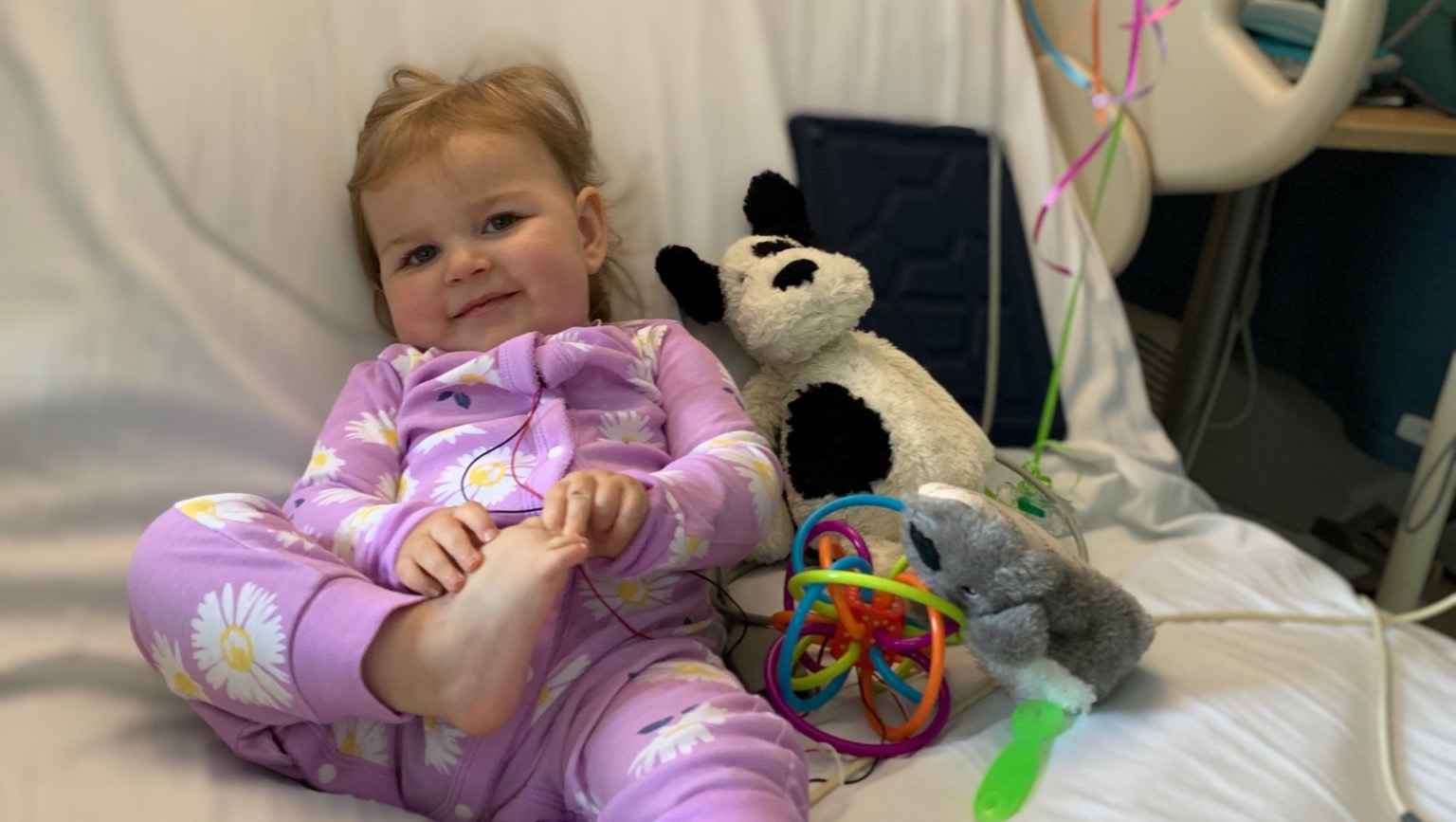
A little over a month later the results came back and our worst fears were realized. Talia has a rare genetic mitochondrial disease called Pyruvate Dehydrogenase Complex Disorder caused by a random mutation of her PDHA1 gene. It is a rare, incurable, and terminal disease that causes her body to be unable to properly convert sugar and carbohydrates into usable cellular energy while instead creating a buildup of toxic lactic acid in her blood, organs, and spinal fluid.
There is no cure for this disease, the only known therapies are vitamins and a strict adherence to the ketogenic diet. Although not a cure, these interventions have already made an immense impact on Talia’s life. In a little over a month, she went from an unsteady sitter who could only scoot a couple inches before tiring, to an active crawler that pulls to stand on anything and everything she can get her hands on! Since learning of Talia’s diagnosis we have had moments of debilitating sadness but also moments of immense tear streaked joy as we watch our daughter do things we feared she’d never be able to do.
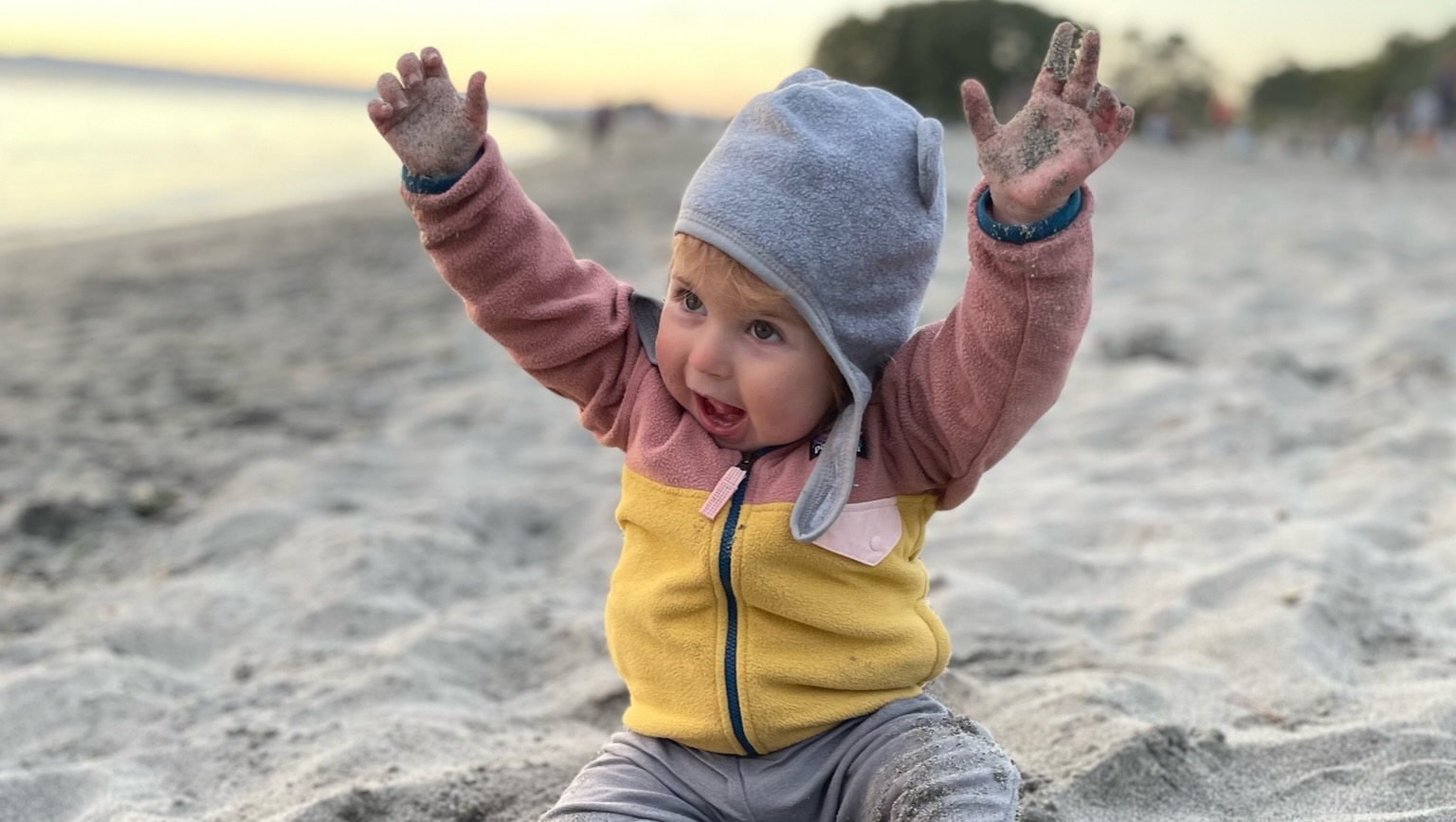
If we have seen this much improvement in such a short amount of time we know that she has such great things in store for her. Unfortunately, the next few months are not going to be easy. In order to continue to see improvement her acidity levels must remain within a healthy range while we safely find her body’s ideal level of ketosis. Her doctors are confident we can find the complex mixture of medications, vitamins, and diet changes that will get her there, but it will require frequent appointments, testing, and potential procedures under the direction of a specialist who has experience with Pyruvate Dehydrogenase Complex Disorder. This means we will need to stay in the Seattle area, close to Seattle Children’s for as long as it takes. Another opportunity for her is a 10 month clinical trial through Seattle Children’s Hospital with the drug Dichloroacetate. While the drug does not offer a cure, it can potentially reduce her lactate levels and increase her energy.
We don’t know what the future holds. We don’t know what course Talia’s disease will take or how soon it will take her from us. What we do know is that despite all of the medical appointments and therapies, what we want most for her is the opportunity to be the eccentric, joyous, tumultuously tempered toddler that she is. Unfortunately, along with her devastating medical diagnosis has come a number of additional monetary stressors that make it difficult to find the time and energy to give her that opportunity she deserves.
Asking for help is never easy. But we find ourselves in a situation where we can’t find a path forward without your help. If you choose to donate, your funds could allow us to stay together in Seattle as a family while Talia is treated at Seattle Children’s as well as afford future medical travel, supplies, therapies and treatments not covered by health insurance.
If you are unable to donate, we would gladly accept every well wish, good vibe, prayer, and thought you can spare for our little T-Bird. Thank you all, your support, in whatever form you can give it, means more than you could ever know.
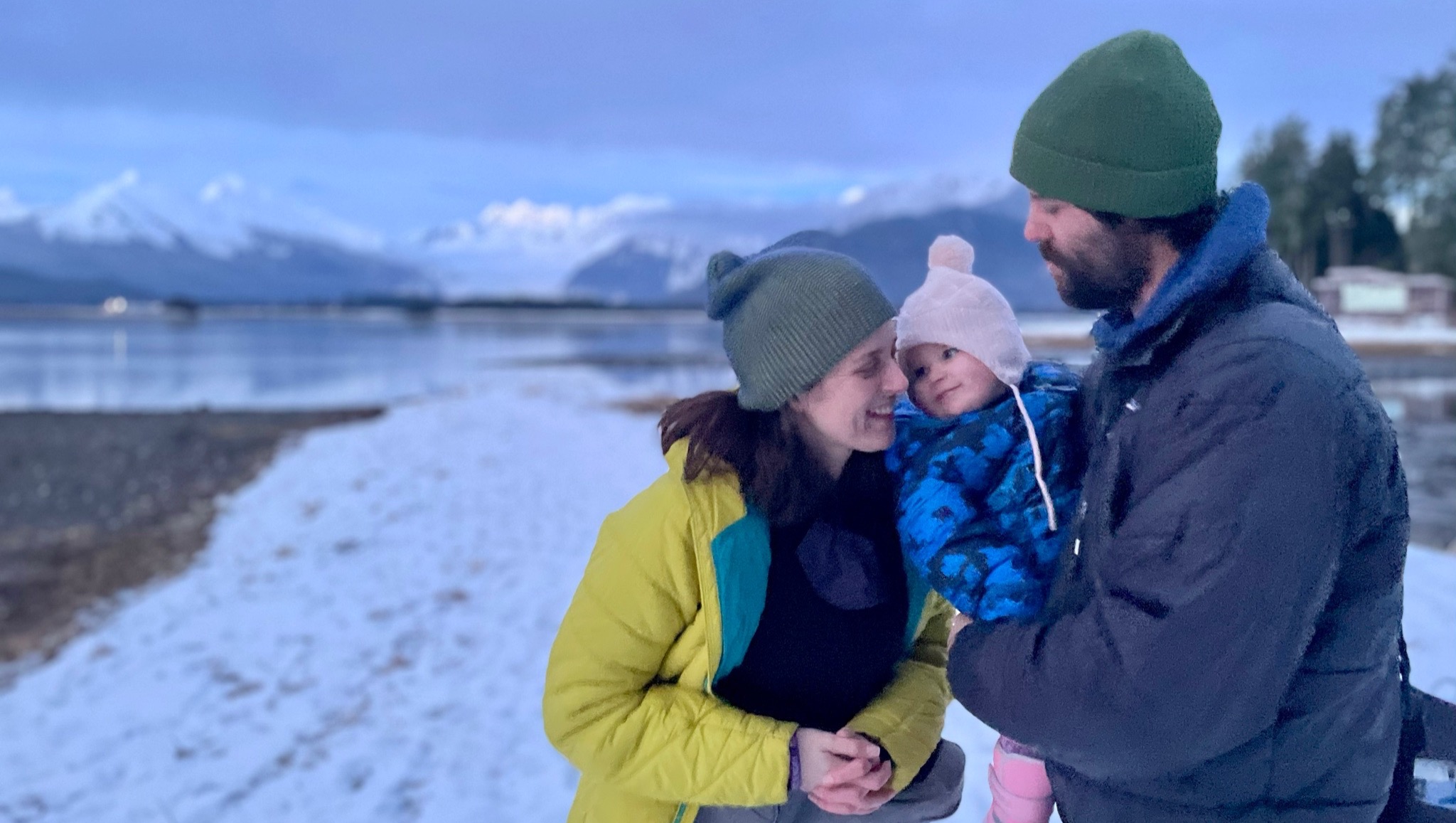
Co-organizers (4)
Meagan DeRaps
Organizer
Juneau, AK
Mary Clare Andrews
Co-organizer
Michele Tetreault
Co-organizer
Stacy Parker DeRaps
Co-organizer
